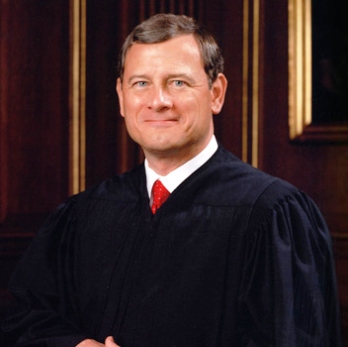It’s nice to know that I’m not the only one pointing out the lack of a clearly defined ethical code followed by justices on the Supreme Court.

“Chief Justice John Roberts Jr.,” the NEW YORK TIMES writes in an editorial (Judicial Ethics and the Supreme Court, Jan. 5) “skirted the heart of the problem: the justices are the only American judges not bound by a code of ethics.
“[Roberts] dismissed criticism that justices are exempt from the Judicial Conference’s Code of Conduct, contending that they do ‘consult’ the code, which ‘plays the same role for the court as it does for other federal judges…”
As I pointed out in last Wednesday’s commentary, “…do the justices, in fact, seek outside opinion when it comes to deciding whether they should step aside in deciding a matter brought before them – a matter that would have implications for millions?”
Here’s the crux of the TIMES argument: “Because of the court’s unique position, a justice’s decision to recuse cannot be appealed to any other court. But the court can certainly say which parts of the code should not apply to the justices and then adopt other suitable means of accountability.”
Accountability, the TIMES correctly points out, is the central issue. “Can we, in fact, trust each member to be truly impartial and to allow them to determine that impartiality on their own?” I wrote.
As for solutions, “For starters,” the TIMES says, “the justices could follow a good example set by the chief justice’s usual ally, Justice Antonin Scalia. They should commit to explaining in written opinions any decisions they make to deny motions for their recusal, except on the most sensitive and confidential issues. They could also openly adopt the judicial conduct code as they work to adapt it.
“Chief Justice Roberts’s report disclosed that in 1991 the justices passed ‘an internal resolution’ on rules about financial disclosure and limits on gifts and outside income. The court could follow this precedent, but this time making public the language of the resolution and the names of the justices who support it, as in any opinion.
“Until the court takes these steps,” the TIMES concludes, “there will be continuing concerns about the justices’ impartiality. It is not enough for the justices to rely on their own “constant vigilance and good judgment,” as Chief Justice Roberts contends. It is disingenuous for him to claim that “no compilation of ethical rules can guarantee integrity” when no code currently applies to the court. Adopting a conduct code would clarify the rules that apply to the justices and greatly bolster public confidence in the court.”
As I’ve mentioned in past commentaries, “the Four Enemies of Integrity,” ethicist Michael Josephson are, “Self-Interest – things we want; Self-Protection – things we don’t want; Self-Deception – this is not an ethical issue; and Self-Righteousness – the end-justifies-the-means thinking.”
If the highest court in the land is intended to be the last, best opportunity for justice, that justice must be absolutely above reproach. Anything less is insincere.
Comments










